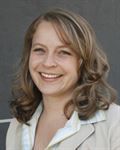
 Graduate students interested in studying at UC Merced will have one more discipline to pursue this fall.
Graduate students interested in studying at UC Merced will have one more discipline to pursue this fall.
The political science group will launch its doctoral degree track within the Social and Cognitive Sciences graduate emphasis in August. The deadline to apply as a graduate student at UC Merced is Jan. 15.
In keeping with UC Merced's commitment to approaching research questions in innovative ways, the political science faculty structured the track in a different way.
Political science Professor Jessica L. Trounstine said most political science programs have four subfields — American politics, comparative politics, international relations and political theory.
“We think that is an outmoded way of thinking about political science,” Trounstine said. “We think there are more interesting intersections.”
Political science graduate studies at UC Merced will have two subfields, Political Cognition and Behavior (CAB) and Political Institutions and Political Economy (PIPE).
The Cognition and Behavior subfield will analyze how people behave and think politically, Trounstine said. This track has natural synergies with the fields of psychology and cognitive science.
“Students in the CAB track might be interested in questions like 'Why do voters select the party that they do?' or 'Why don’t they turn out to vote in every election?'” Trounstine said. “In other words, 'Why do people make the political decisions they do?'”
Students in the Political Institutions and Political Economy subfield would explore the rules and structures within politics, as well as the distribution of political benefits.
Examples of questions student might explore include how redrawn district lines affect who is elected to Congress or why certain areas of a city have nice streets and parks.
The two tracks are meant to be designed with students' needs in mind, Trounstine said. The goal is have students collaborate with faculty members on research projects and to learn how to conduct their own studies.
“We intend them to finish with publications in hand and fully understanding the research process,” she said.
Faculty members in the political science group have expertise in local government, Congress, the judicial system, direct democracy, political psychology, political behavior, political economy and Chinese politics. The group also plans to encourage students to work across disciplines as they pursue their research.
With a strong need for teaching assistants, Trounstine said graduate students may be able to earn their doctoral degree with little or no debt. A student who serves as a teaching assistant has tuition waived and earns about $17,000.






